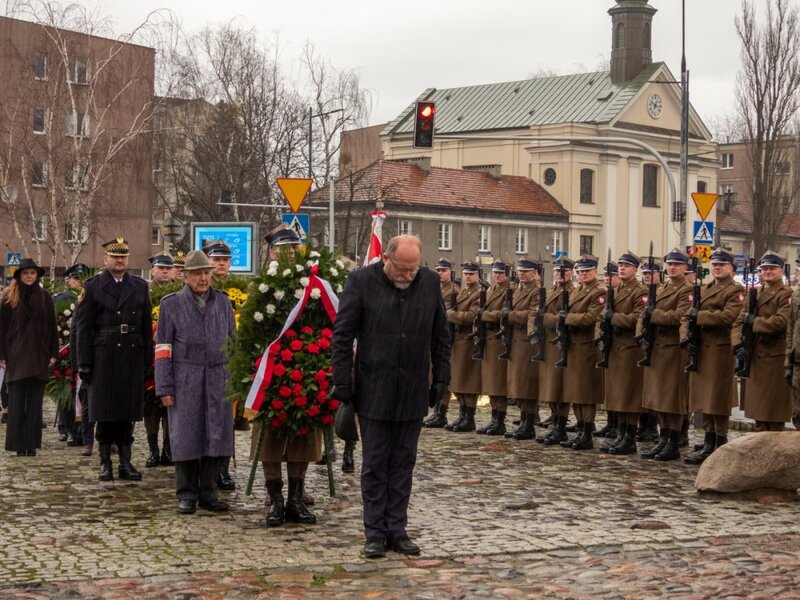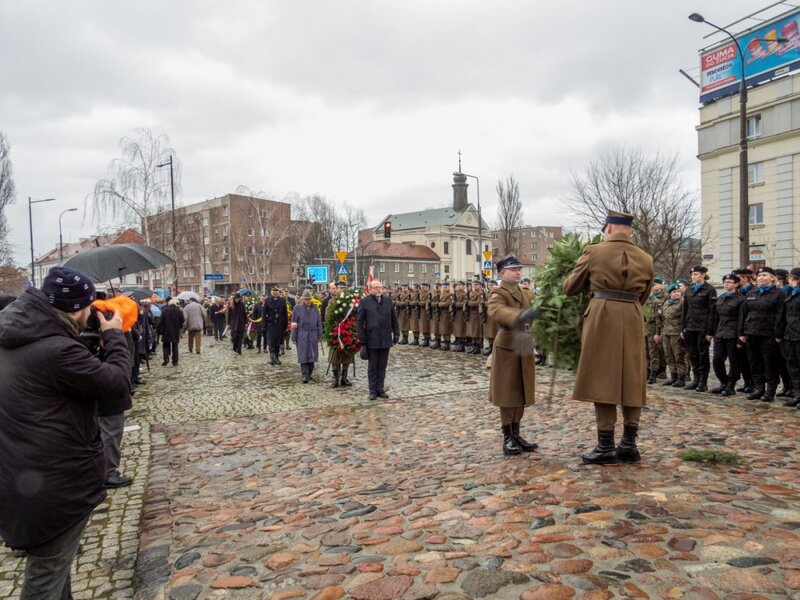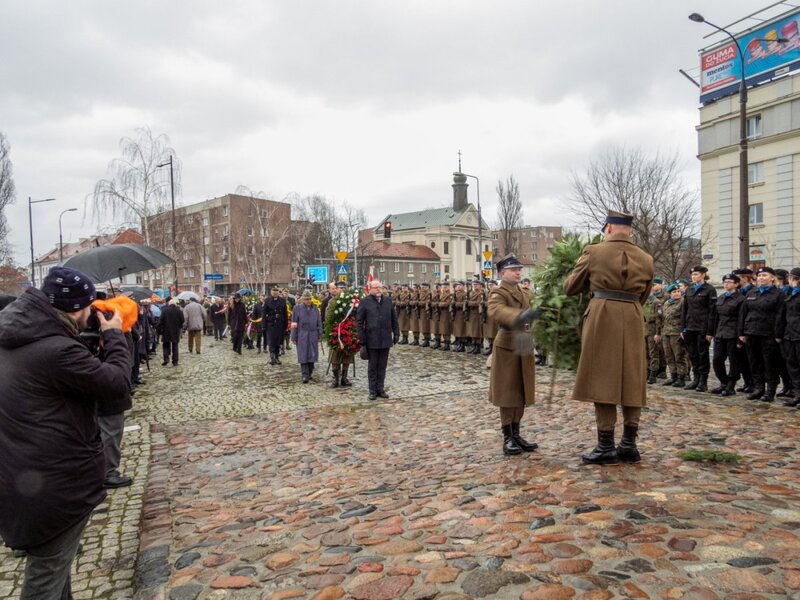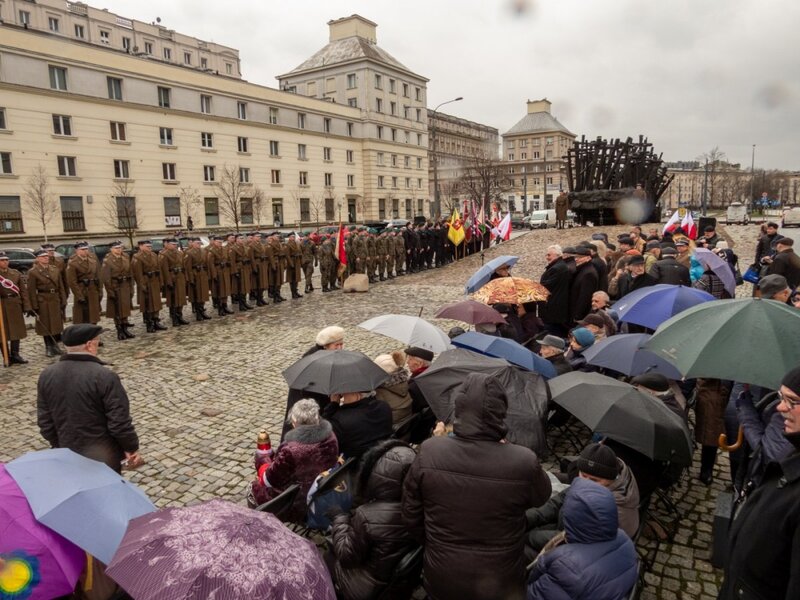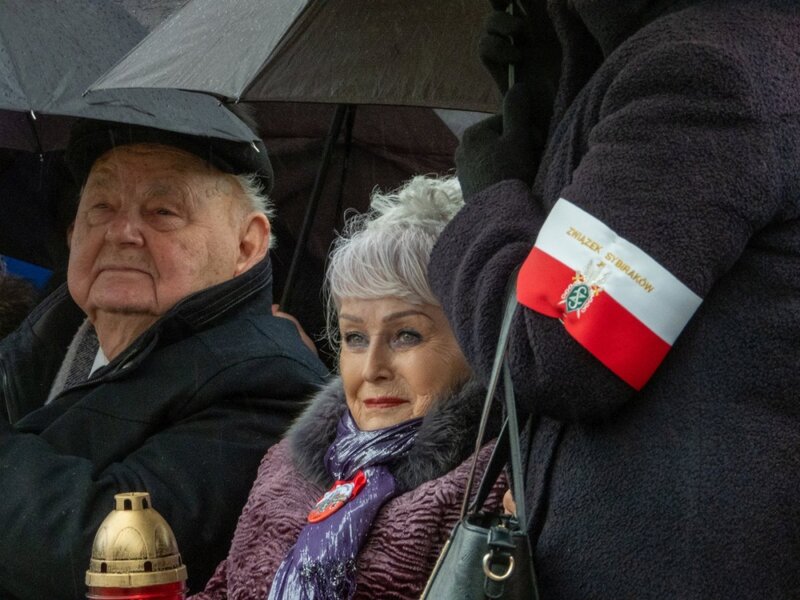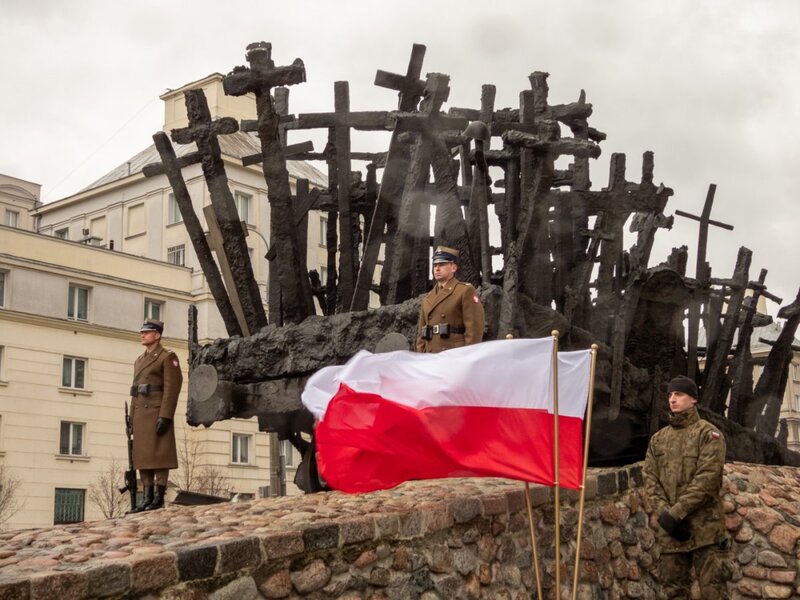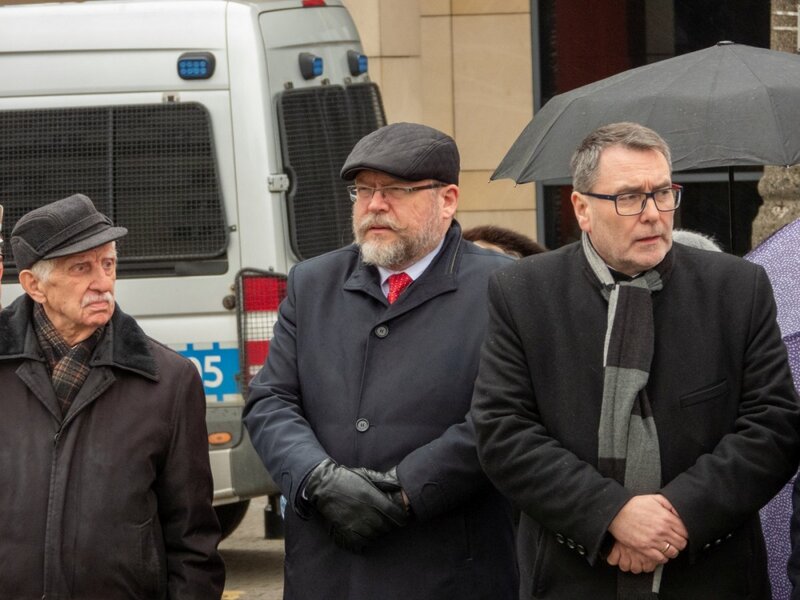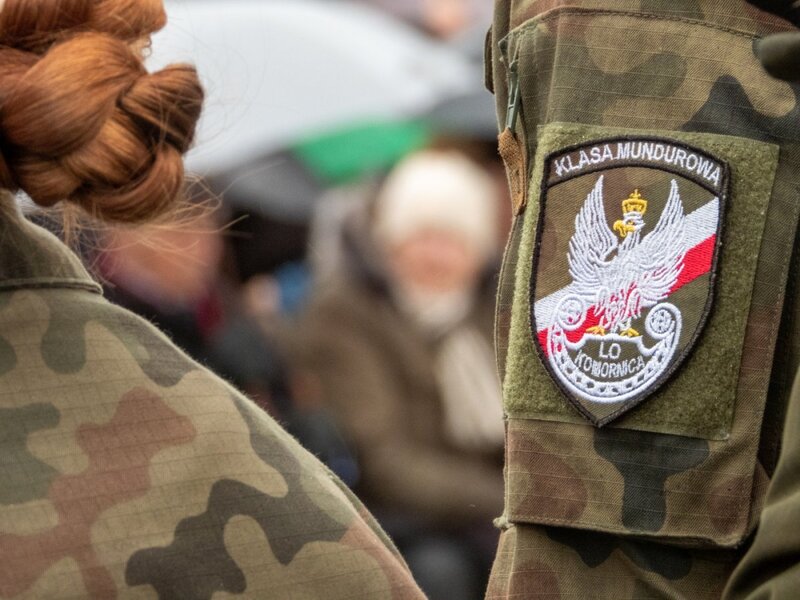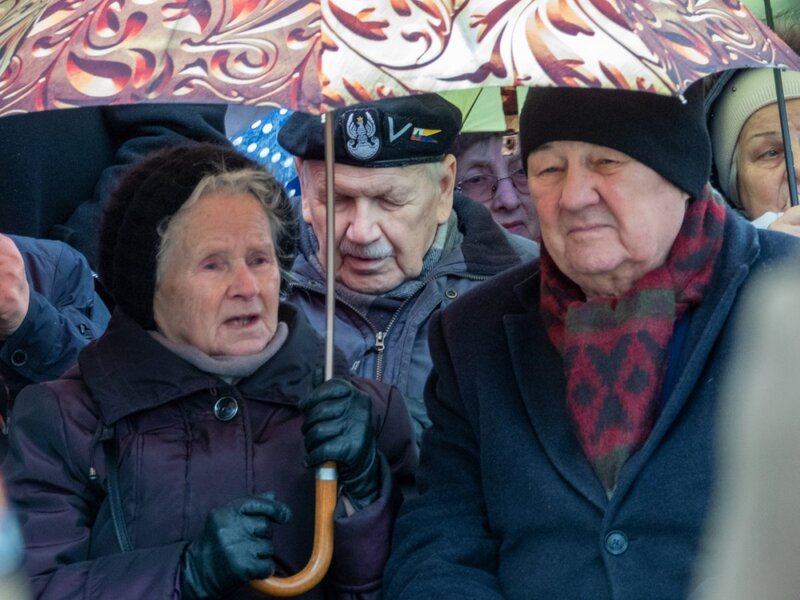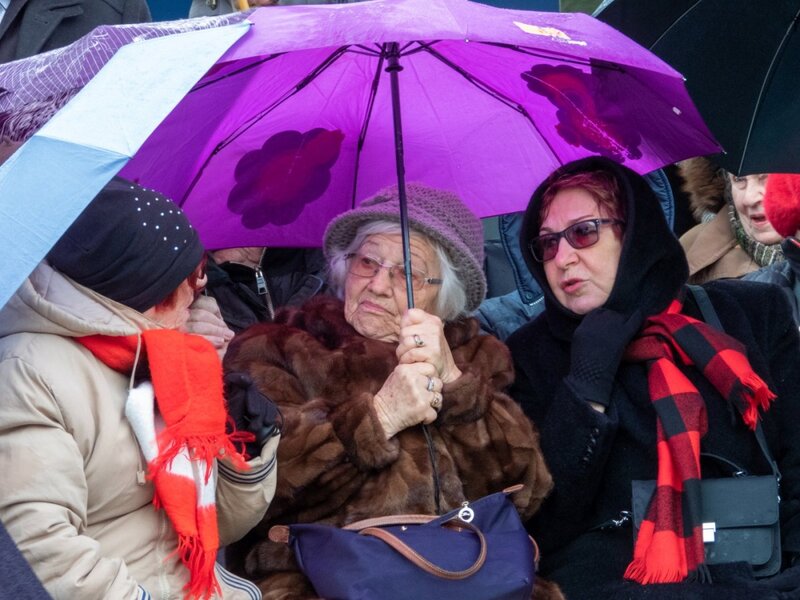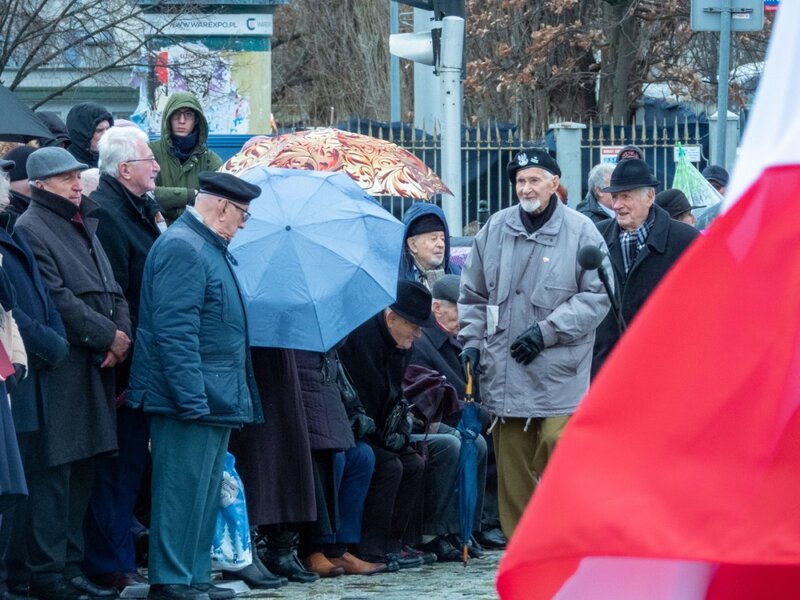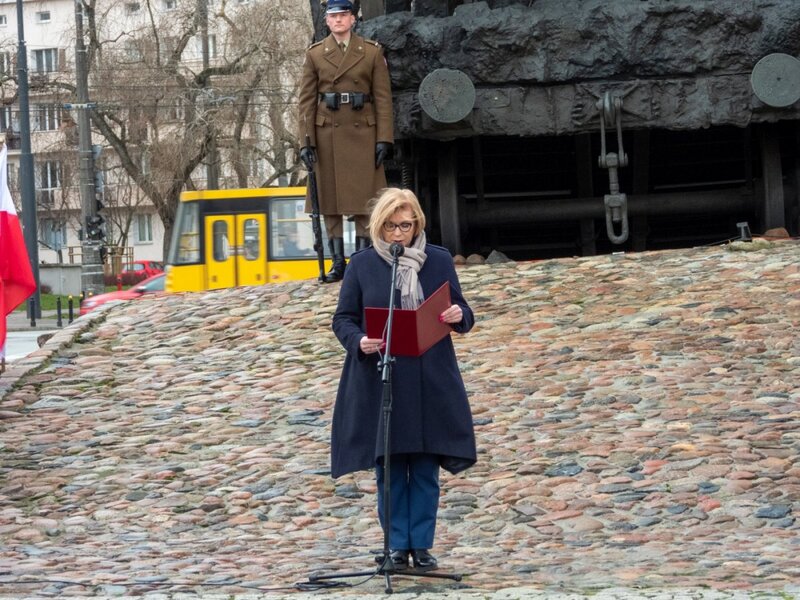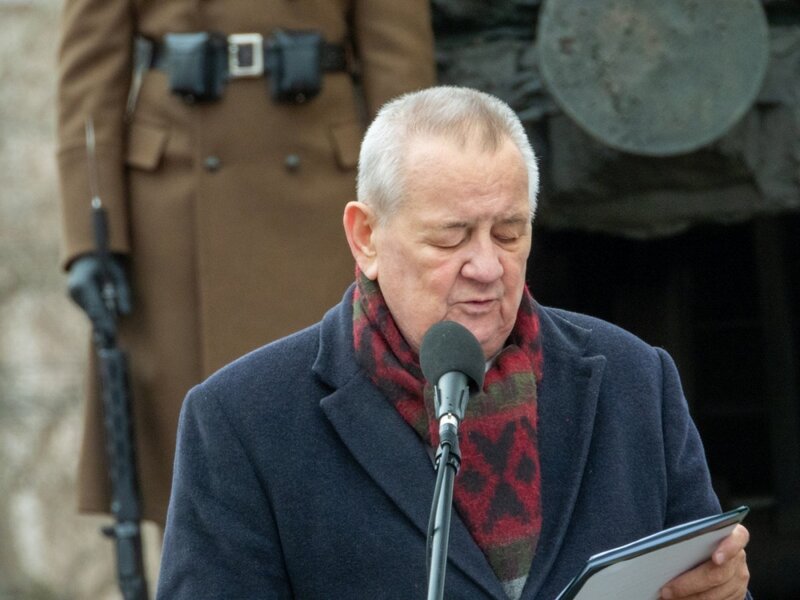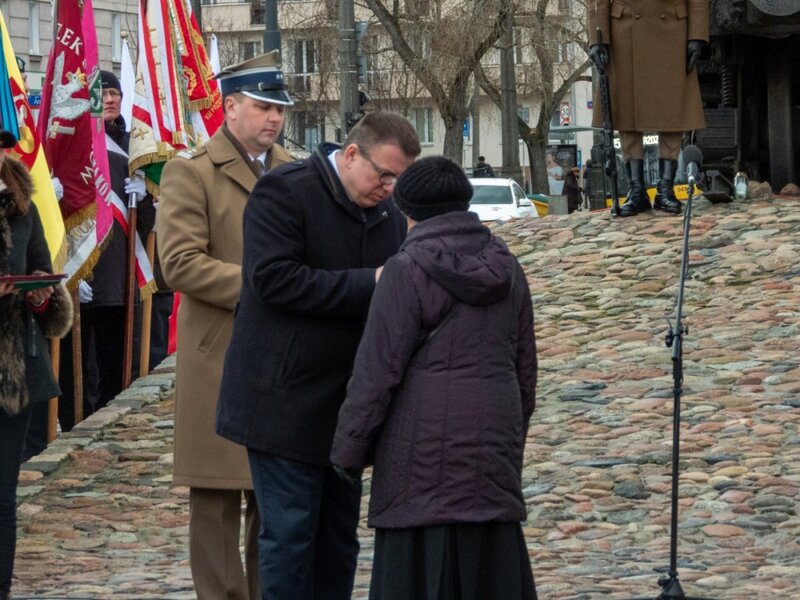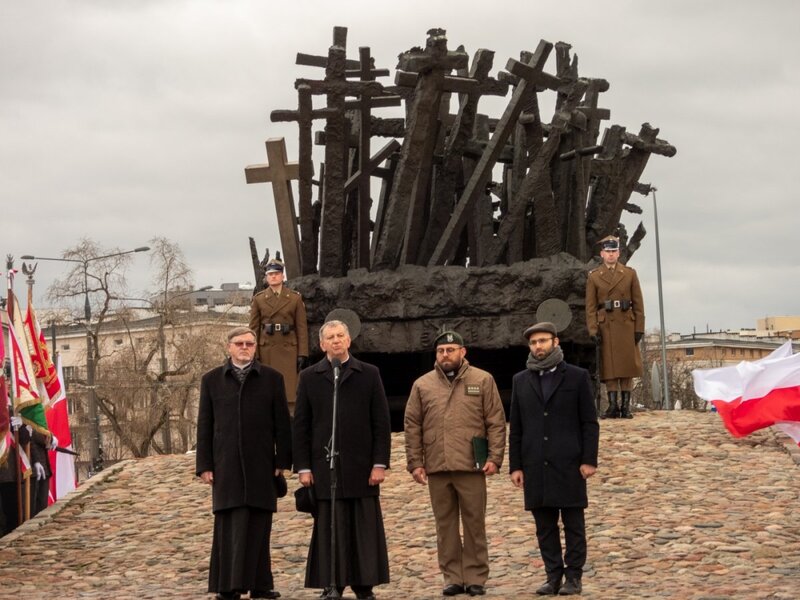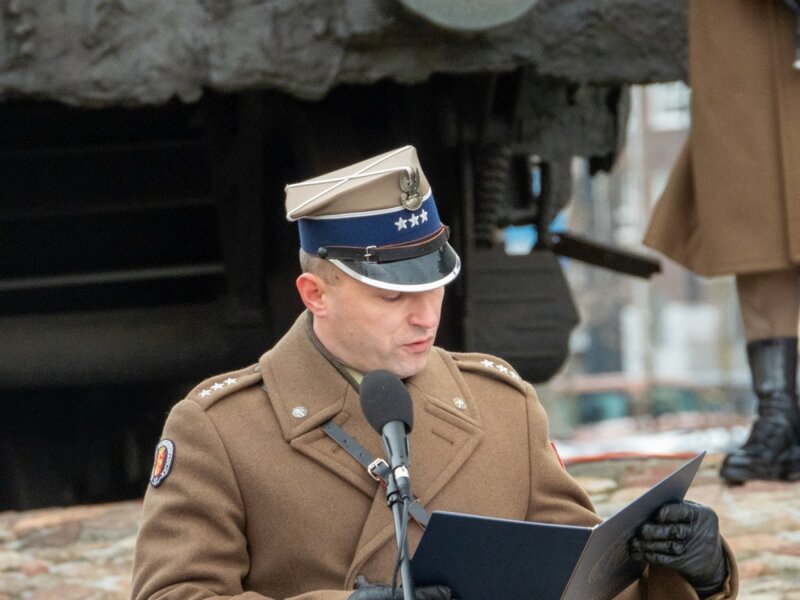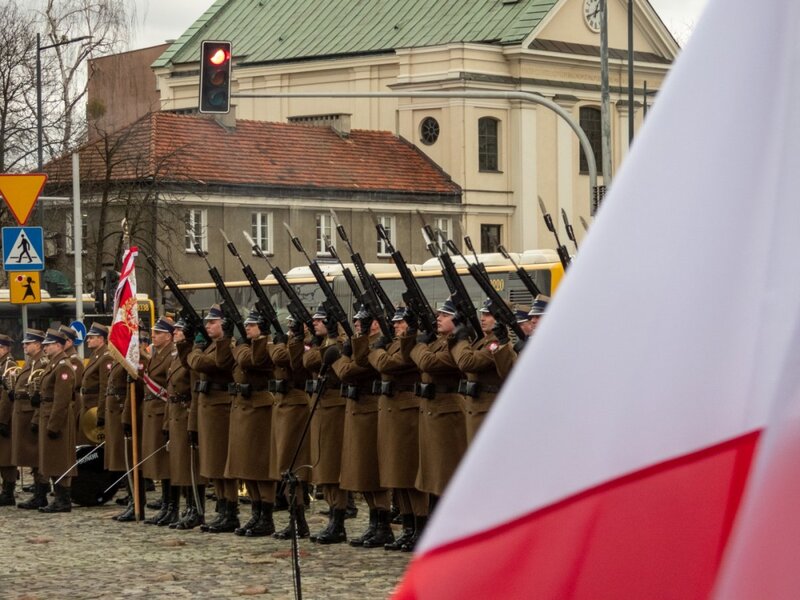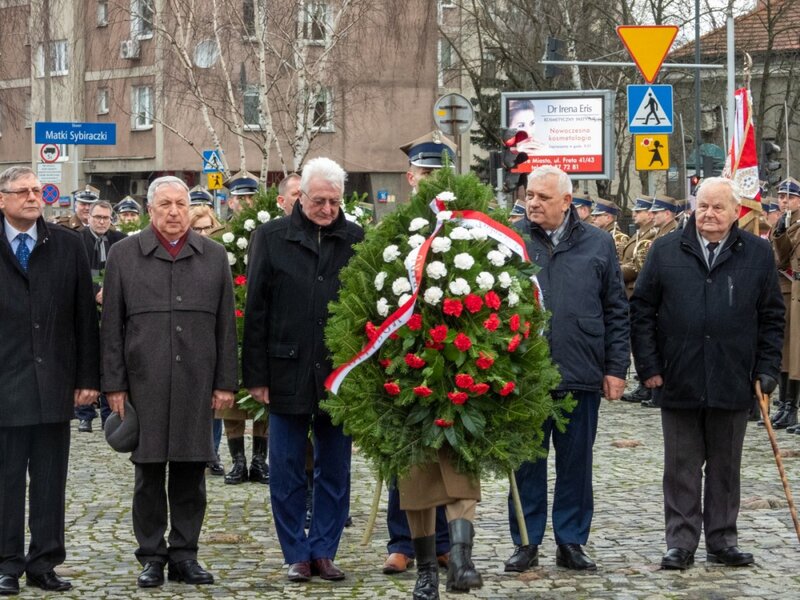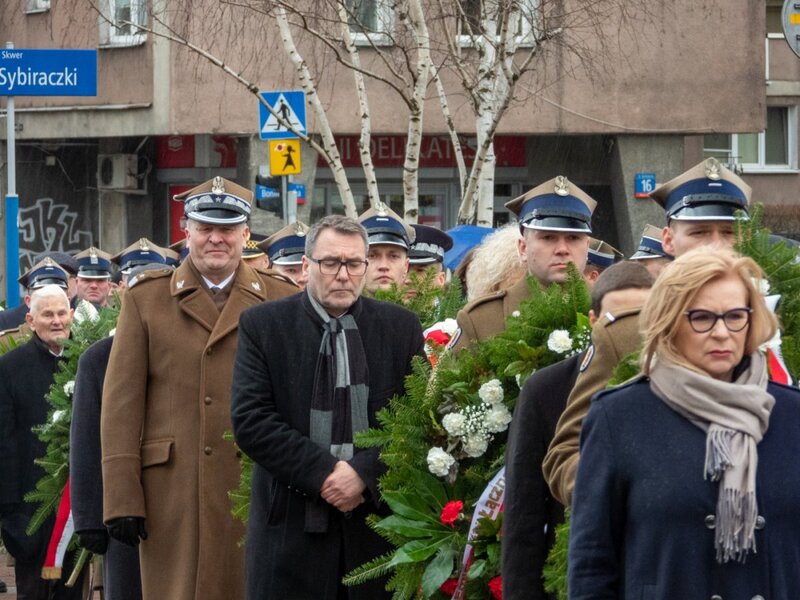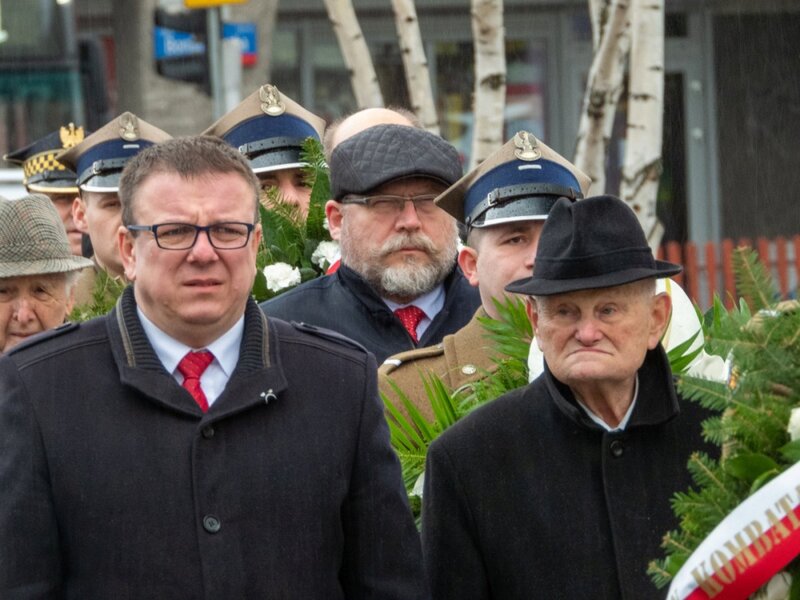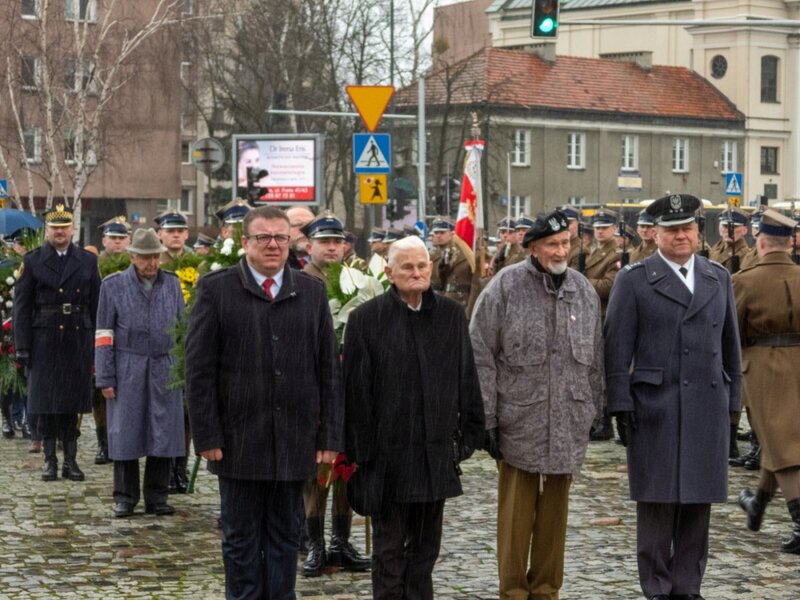On 10 February 2020, on the 80th anniversary of the first mass deportation of Polish citizens deep into the USSR, a ceremony commemorating the victims of this crime took place in front of the Monument to the Fallen and Murdered in the East on Muranowska Street in Warsaw.
The Institute of National Remembrance was represented by the Director of the Office for Commemorating the Struggle and Martyrdom, Adam Siwek. During the celebrations, the gathered said a prayer for Polish citizens deported to Siberia and the victims of communist repression and their families.
During the ceremony, Wojciech Lesiak, the Office for War Veterans and Victims of Oppression awarded the "Pro Bono Poloniae" medals.
At the end of the ceremony, flowers were laid, Director Adam Siwek paid tribute to the victims of communist repression by laying a wreath in front of the monument.
Flowers in front of the monument were also laid by: Poles exiled to Siberia and their families, members of the Council for War Veterans and Victims of Oppression headed by judge Bogusław Nizieński, on behalf of the President of the Republic of Poland - prof. Adam Waśko, on behalf of the Speaker of the Sejm - Deputy Speaker Małgorzata Gosiewska, on behalf of the Prime Minister - Jan Wadowski, Senator Maria Koc, Warsaw Garrison Commander General Robert Głąb, Mazovian Voivode Konstanty Radziwiłł, as well as representatives of all major veterans’ organizations, representatives of local government authorities and the clergy.
